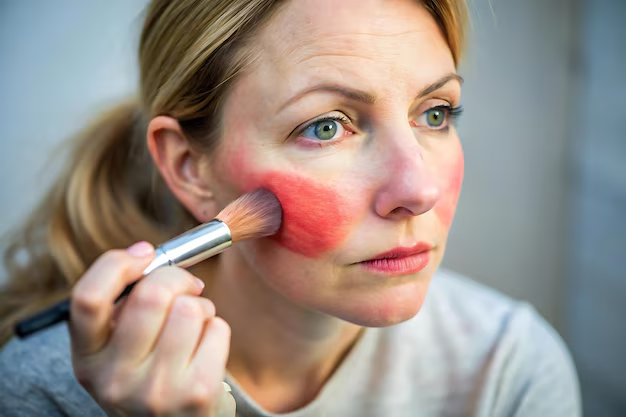Understanding Rosacea: Can It Truly Go Away?
If you’ve ever found yourself glancing in the mirror and noticing persistent redness or bumps on your face, you might be among the millions who are affected by rosacea. Does rosacea go away? This is a common question for those experiencing the often unpredictable skin condition. Let's dive deep into the intricacies of rosacea, tackling the possibilities of its elusive disappearance, and exploring helpful strategies to manage its symptoms.
What is Rosacea?
Rosacea is a long-term, often life-disrupting disorder that primarily affects the skin and sometimes the eyes. Its hallmark feature is redness of the face, but it can also cause swelling, visible blood vessels, and acne-like bumps. Though it can affect anyone, it most commonly impacts middle-aged individuals with fair skin.
Symptoms of Rosacea
- Persistent facial redness
- Visible blood vessels
- Swelling and sensitivity
- Acne-like breakouts
- Eye irritation
- Thickening of the skin, especially on the nose
The chronic nature of rosacea often leads individuals to wonder about the permanency of this condition.
The Million-Dollar Question: Does Rosacea Ever Go Away?
The truth is, for most people, rosacea does not completely go away. However, the severity of symptoms can change over time, fluctuating with exposure to triggers, diet, and stress levels. Some individuals experience long periods of remission, where symptoms are minimal or absent. Understanding this condition can help you better navigate its challenges.
Remission and Flare-ups
Rosacea is characterized by cycles of remission and flare-ups. A remission is a period when symptoms significantly reduce, while a flare-up is when symptoms intensify. Various factors such as diet, environmental elements, and lifestyle choices can heavily influence these phases.
Triggers: Key Influencers of Rosacea
While rosacea itself may not completely vanish, identifying and managing triggers can drastically improve the quality of life for those affected. Here are some common triggers:
Environmental Factors
- Sun exposure
- Cold weather
- Wind
- Humidity
Lifestyle and Diet
- Spicy foods
- Alcohol, especially red wine
- Hot beverages
- Stress and anxiety
Physical and Health-Related Factors
- Vigorous exercise
- Certain medications
- Skin-care products with alcohol or fragrances
Being mindful of these triggers can help maintain longer periods of symptom reduction.
Managing Rosacea: Practical Tips and Strategies
Though rosacea may be a long-standing condition, numerous management strategies can help keep its symptoms under control.
Skincare Routine
Adopting a gentle skincare routine is crucial. Use mild, non-abrasive cleansers and avoid products containing alcohol or irritants.
- Moisturize regularly: Opt for a fragrance-free moisturizer to hydrate the skin, reducing irritation.
- Sun protection: Wear sunscreen daily with a high SPF to protect sensitive skin from harmful UV rays.
Diet and Hydration
Adjustments to diet can also be influential in managing rosacea symptoms.
- Monitor food intake: Identify and minimize trigger foods such as spicy dishes and hot drinks.
- Stay hydrated: Drinking plenty of water can help flush out toxins and reduce skin irritation.
Stress Management
Since stress is a well-known trigger for many individuals, implementing stress-management techniques can be beneficial.
- Mindfulness and yoga: Engaging in activities like yoga or meditation can reduce stress levels.
- Adequate sleep: Ensuring you get enough sleep can improve overall skin health and help prevent flare-ups.
Consulting with Professionals
While lifestyle changes and self-care are important, seeking professional advice is highly recommended. Dermatologists can provide tailored advice and treatment plans that may include topical and oral medications to control symptoms effectively.
Treatment Options
- Topical creams and gels: These target specific symptoms like redness or pimples.
- Oral medications: Antibiotics or other drugs can be prescribed to tackle more severe rosacea.
- Laser and light therapies: In some cases, these treatments can reduce visible blood vessels.
With the right combination of treatments and lifestyle modifications, individuals can significantly reduce the impact of rosacea on their lives.
Empowering Yourself with Knowledge
Understanding that rosacea is a chronic condition, yet manageable with diligent care, can empower individuals. Education and awareness are key to embracing a lifestyle that promotes skin health. Being proactive about triggers, skin care, and professional consultations forms a defensive trifecta against the unpredictable nature of rosacea.
Key Takeaways for Managing Rosacea 🌟
- Understanding Rosacea: A chronic condition with fluctuating symptoms. 📊
- Triggers: Avoid environmental and dietary triggers to minimize flare-ups. ⚠️
- Skincare and Diet: Adopt gentle skincare routines and mindful eating habits. 🍽️
- Stress Management: Embrace practices like meditation to manage stress. 🧘♀️
- Professional Help: Regular consultations with healthcare providers are invaluable. 👩⚕️
The journey with rosacea involves patience and perseverance. By arming yourself with knowledge and tools, you can effectively manage symptoms and enjoy a better quality of life.

